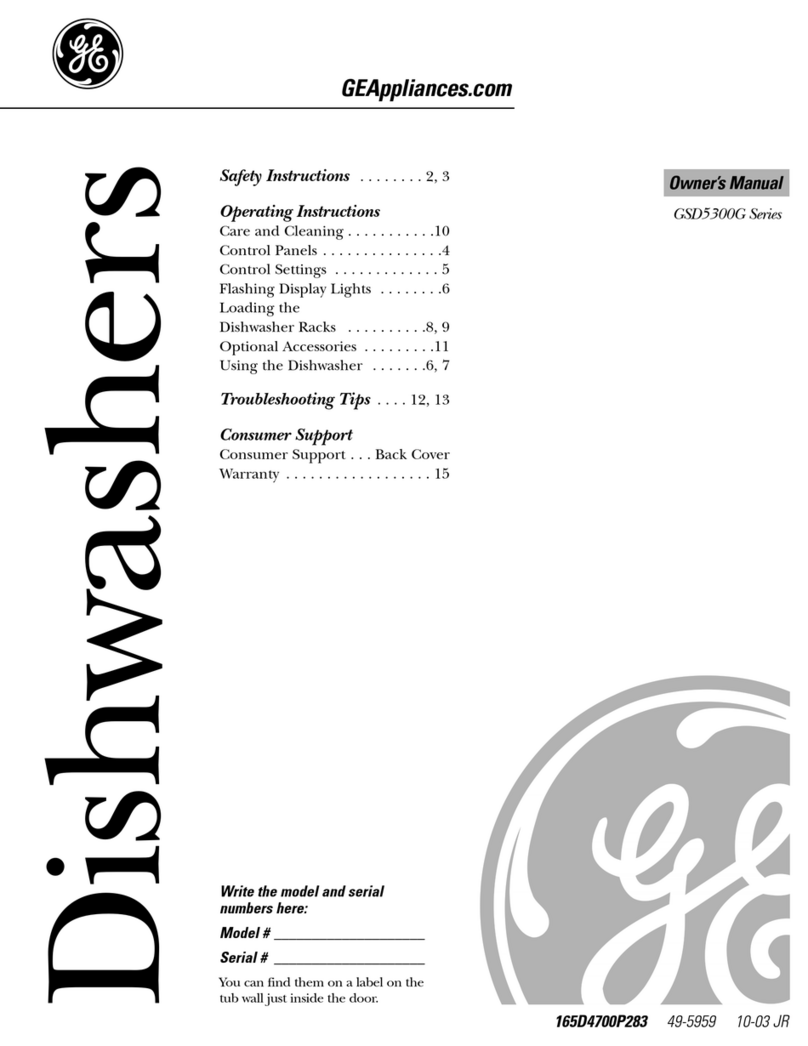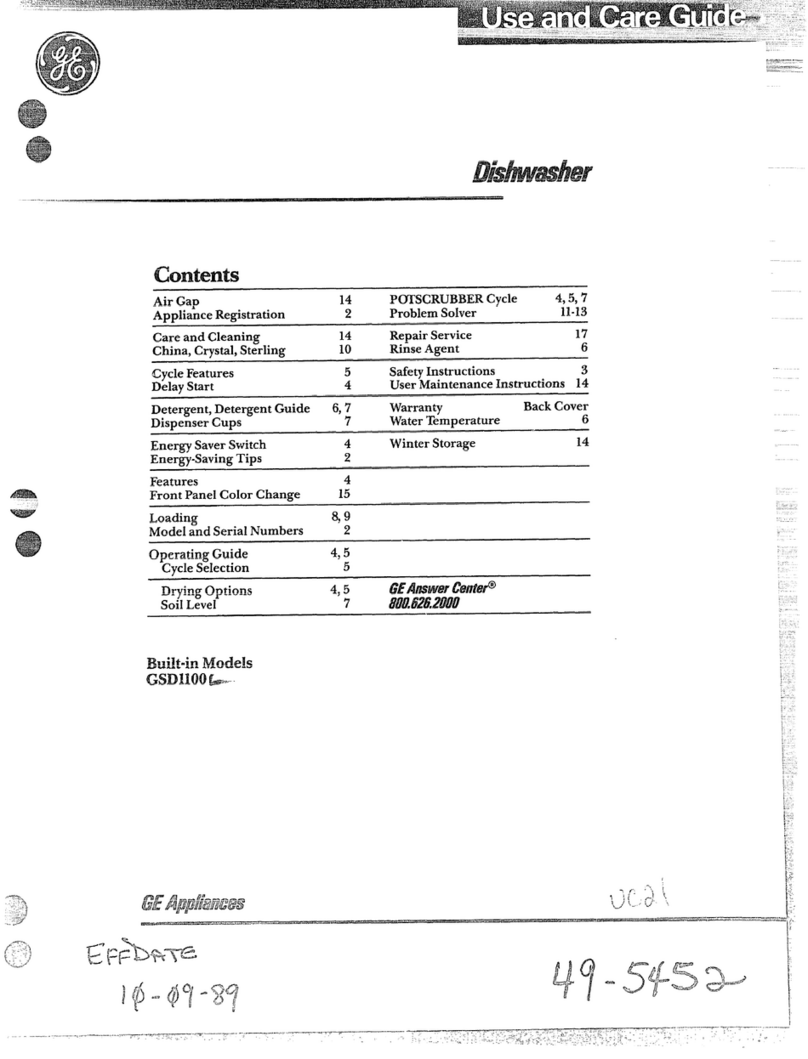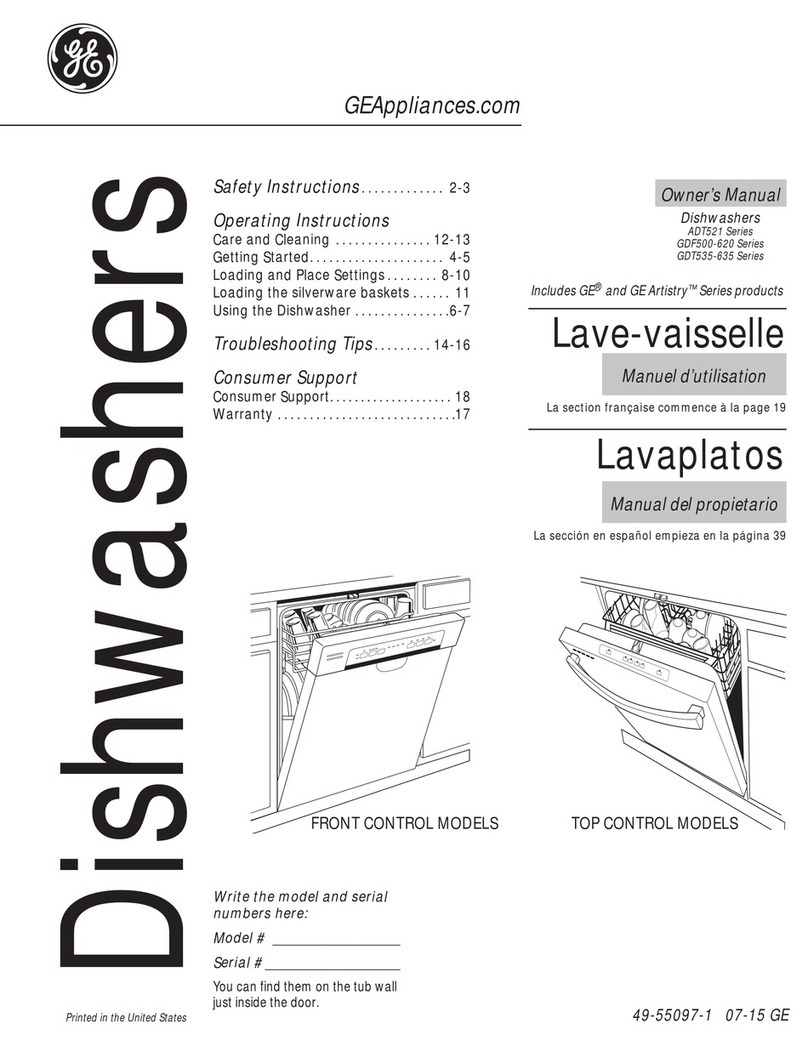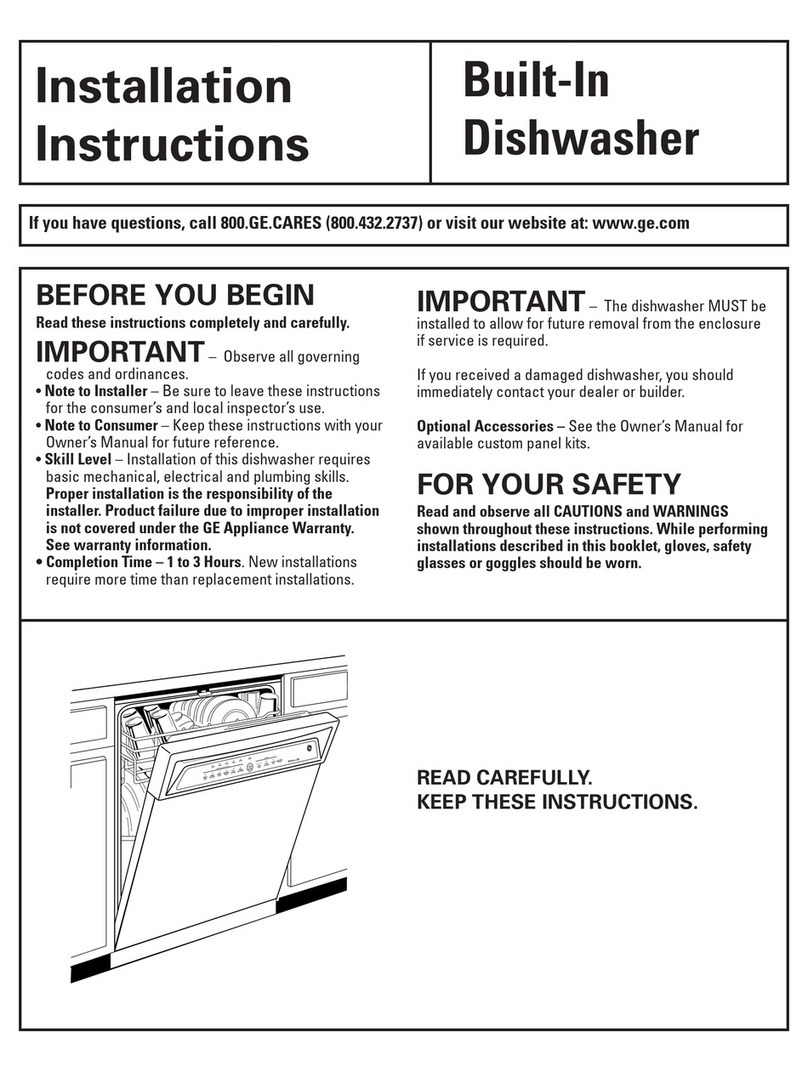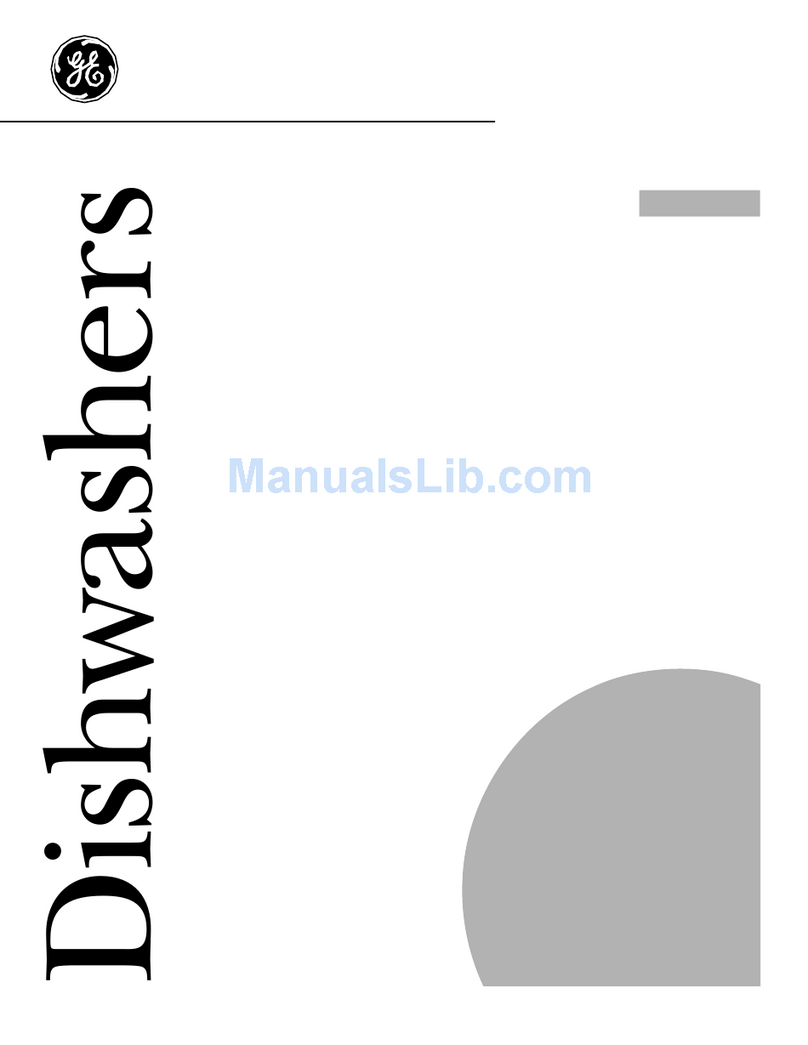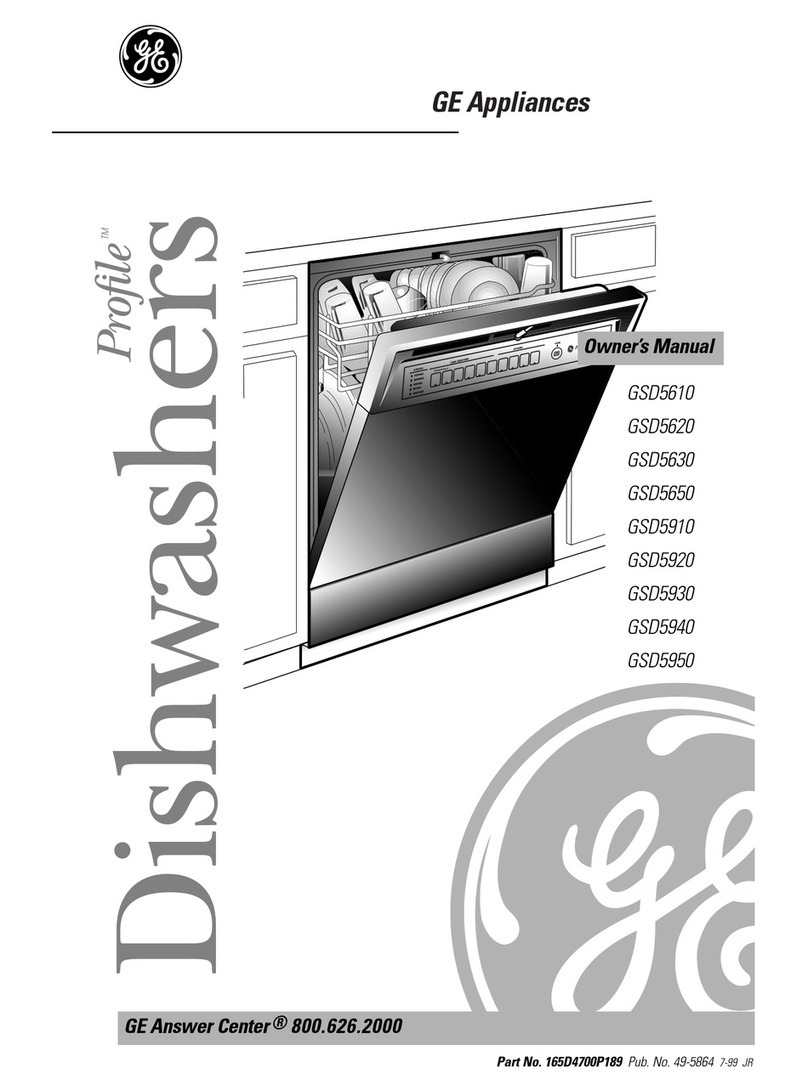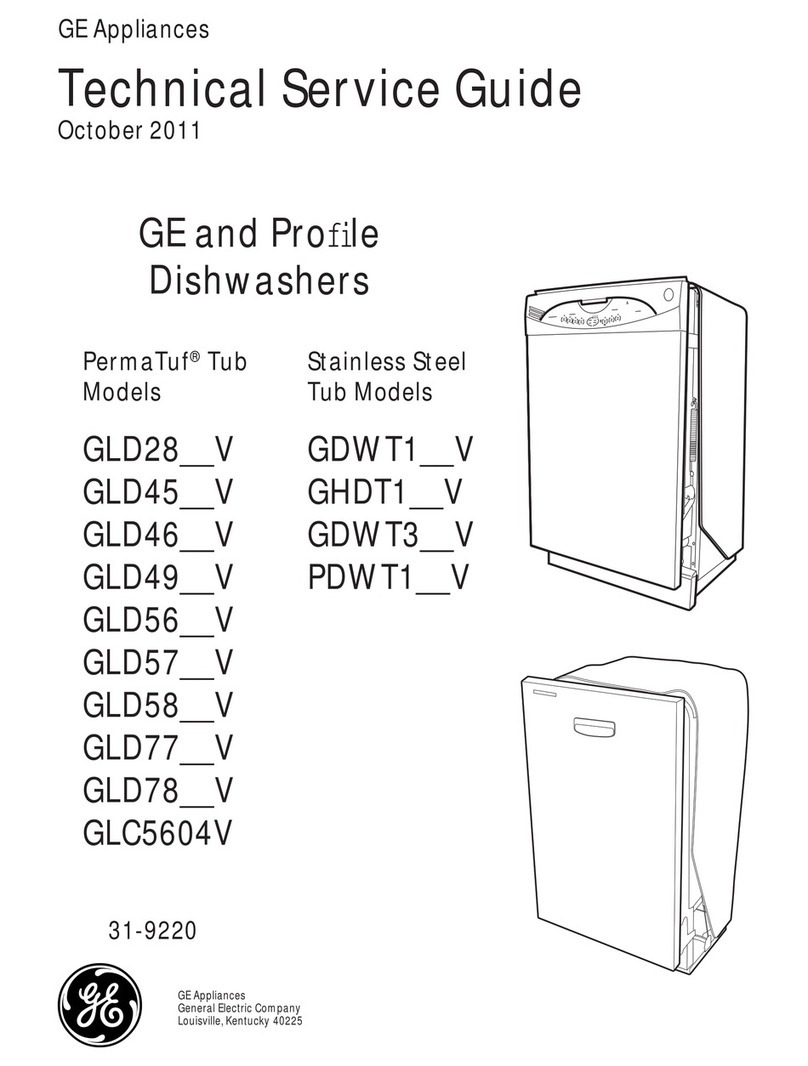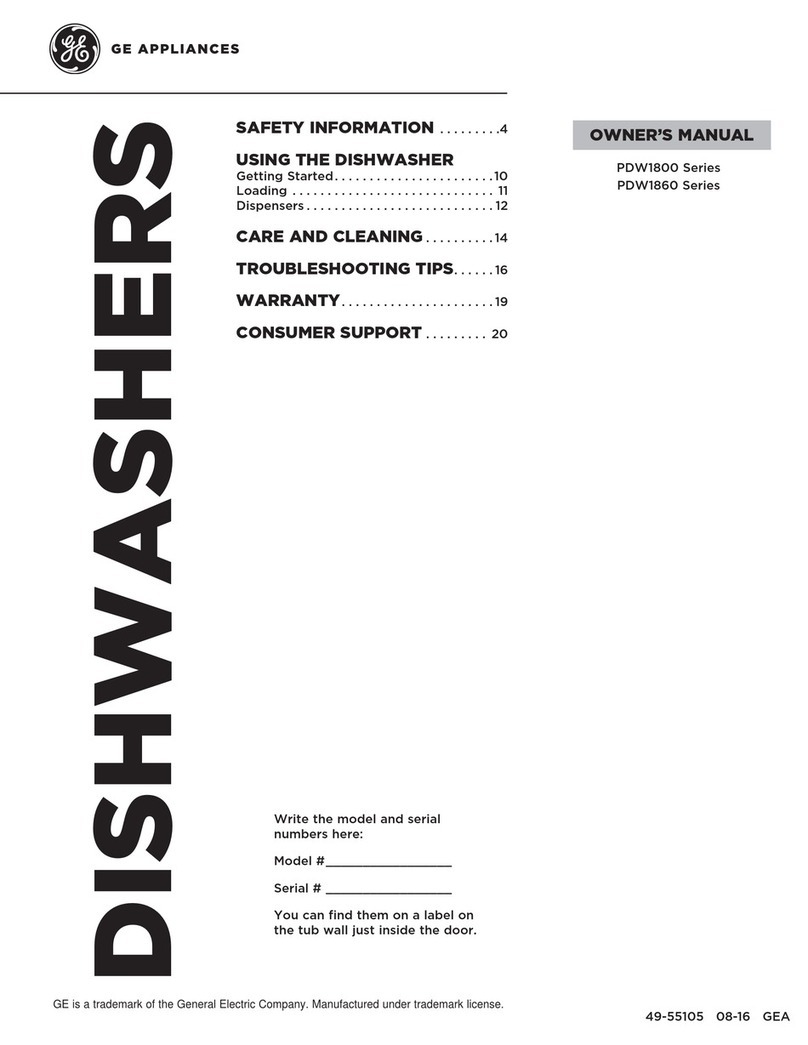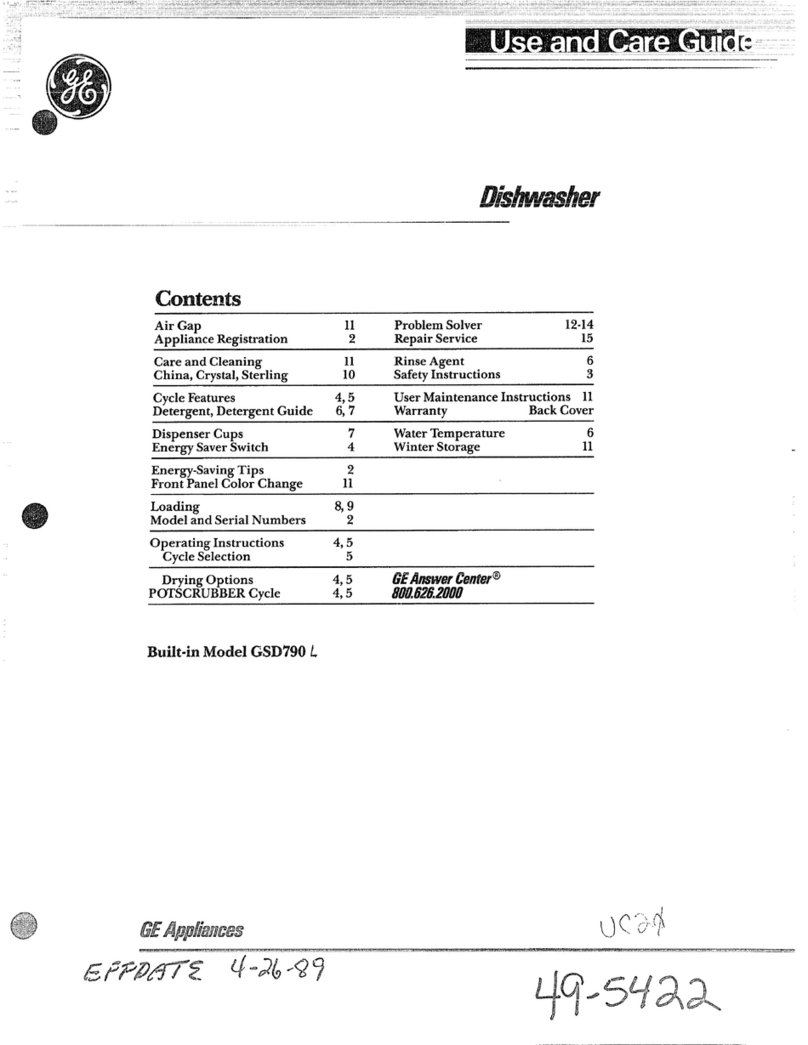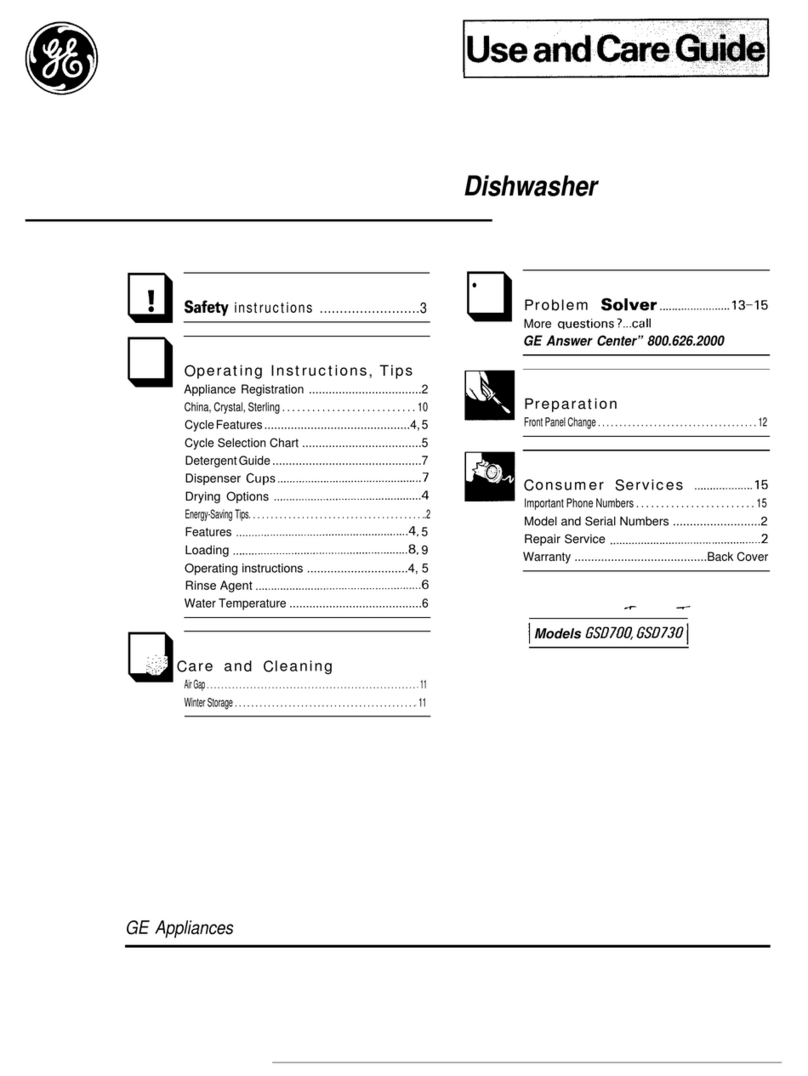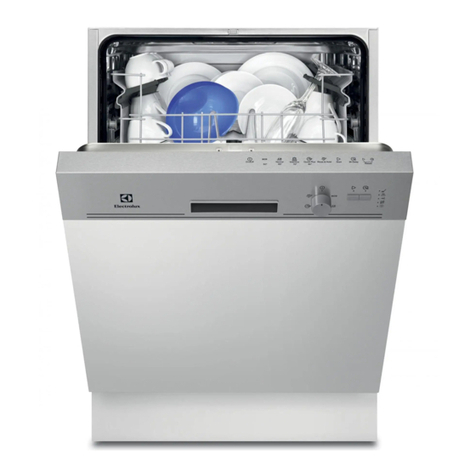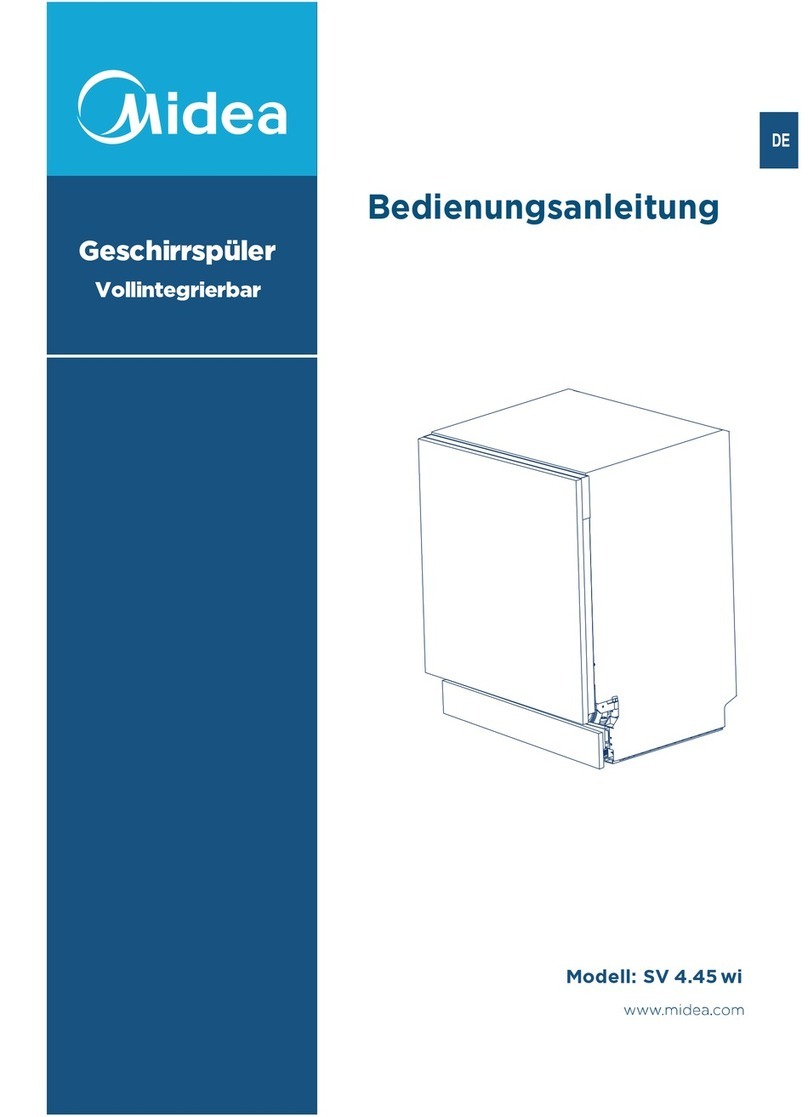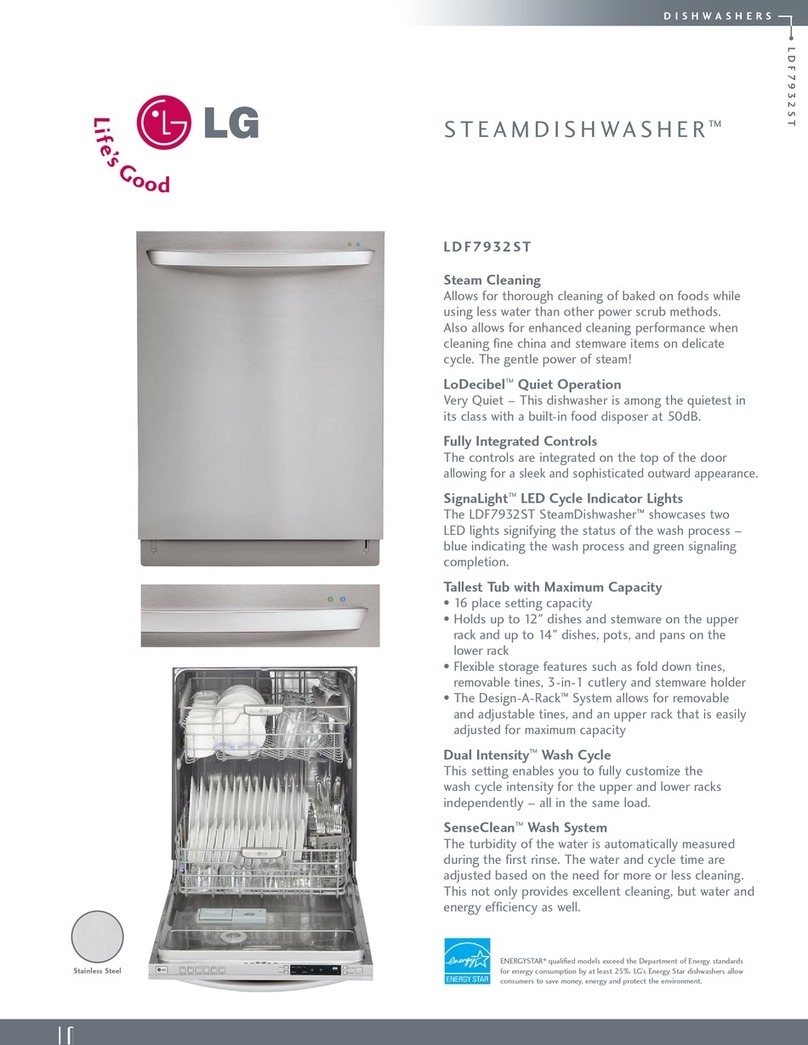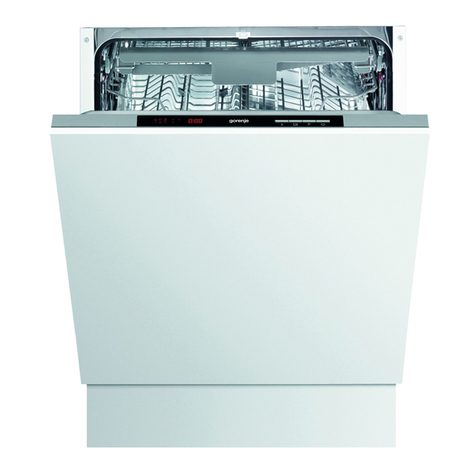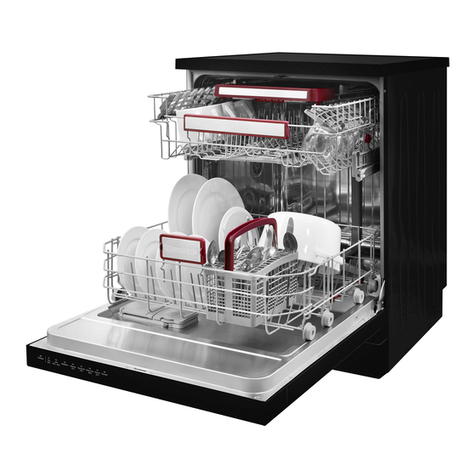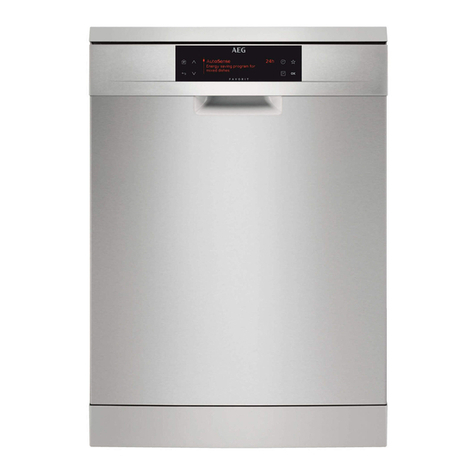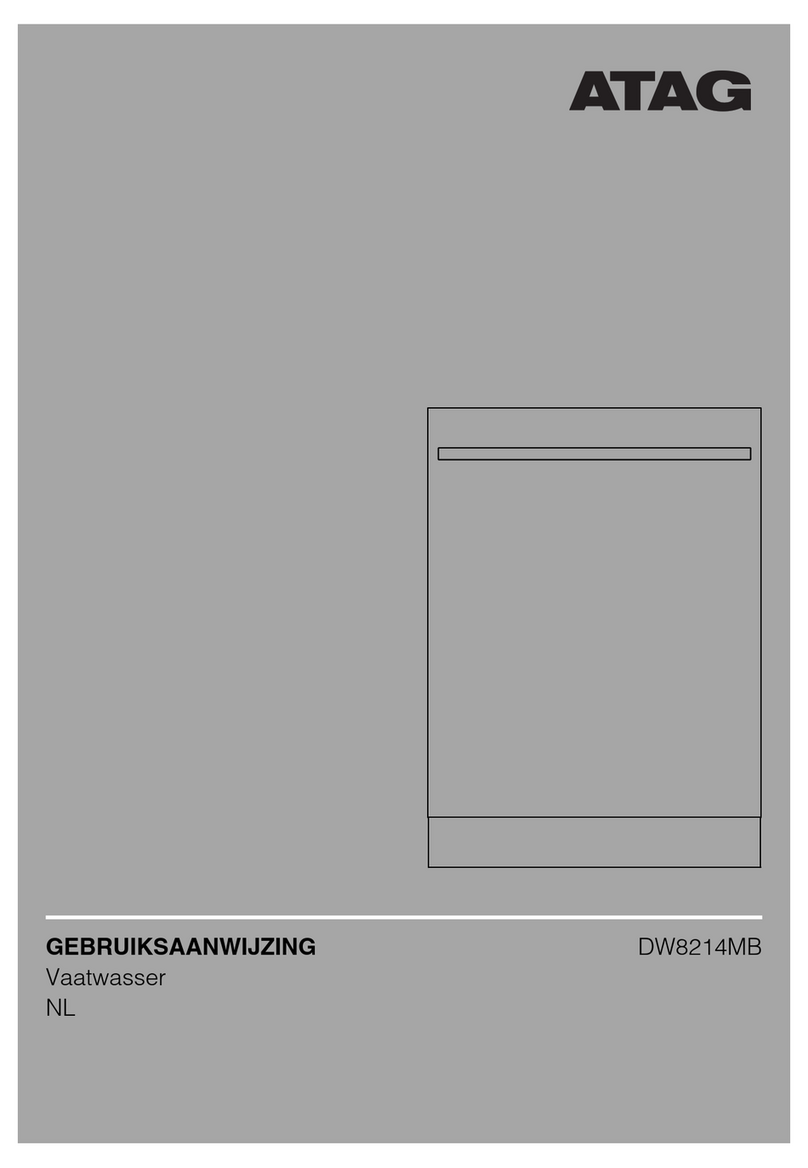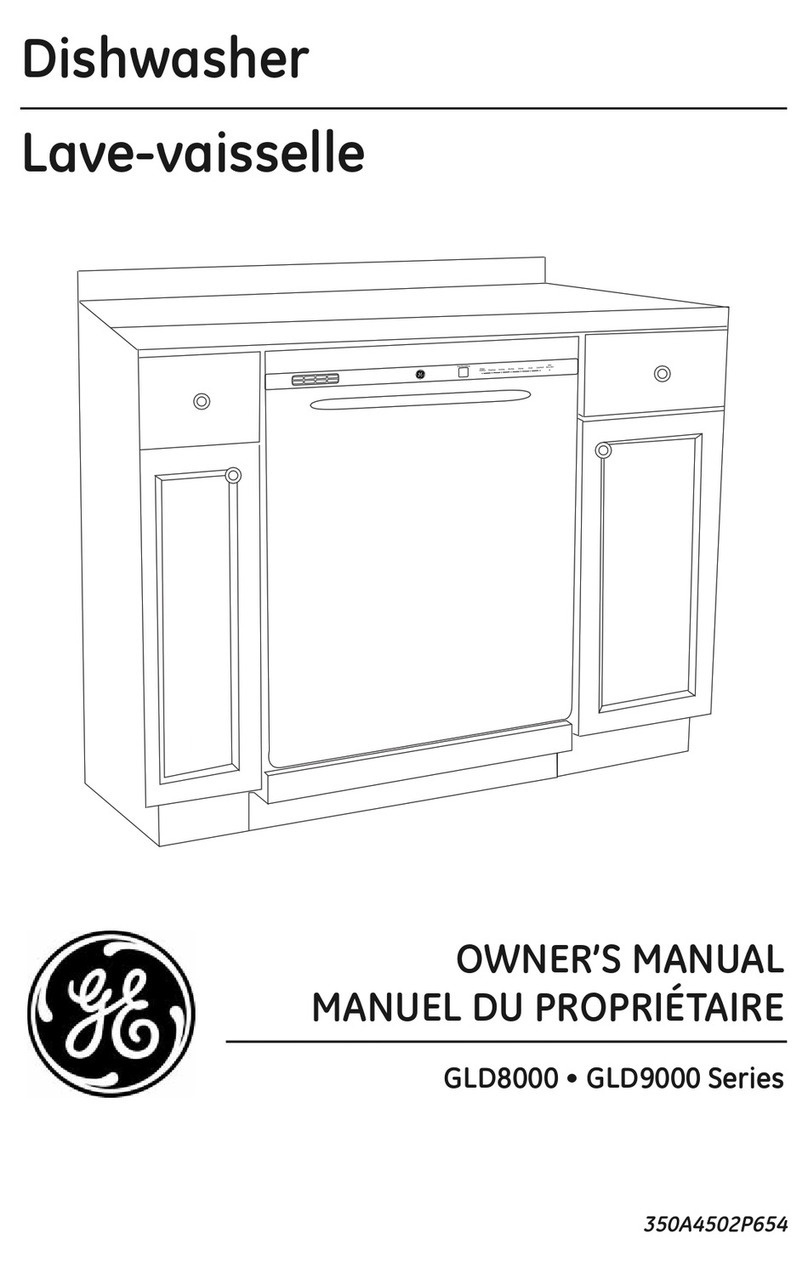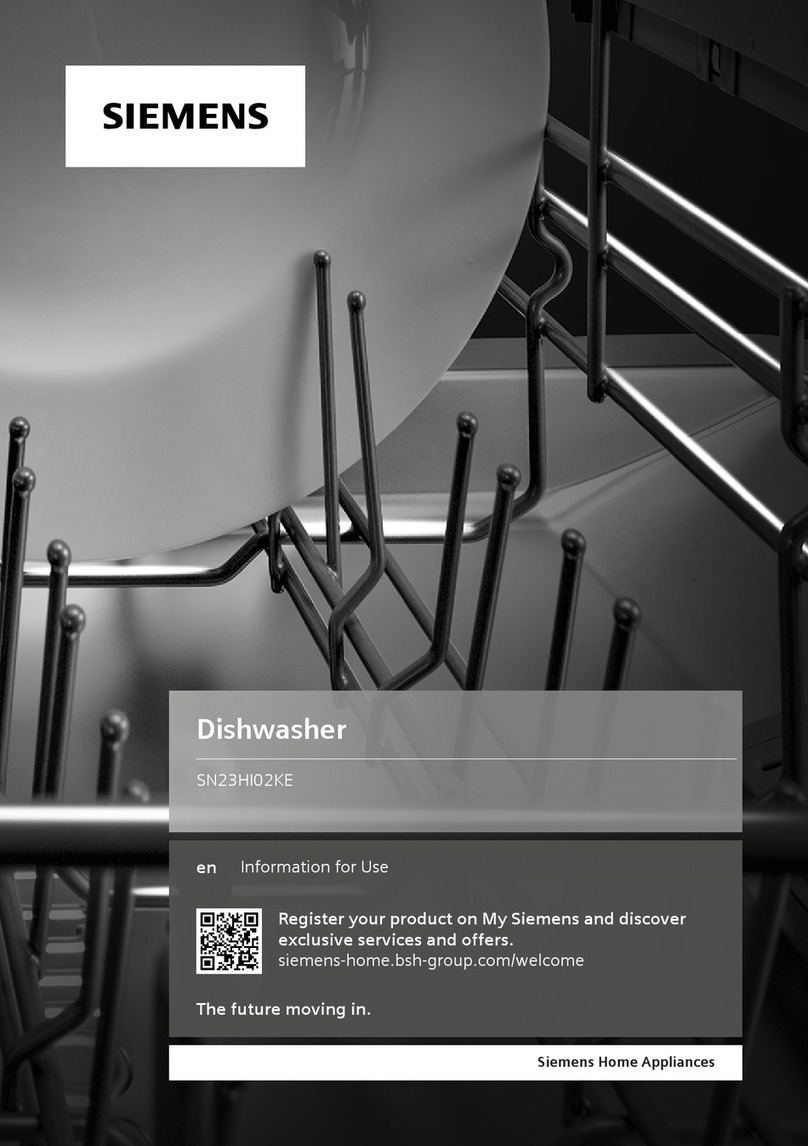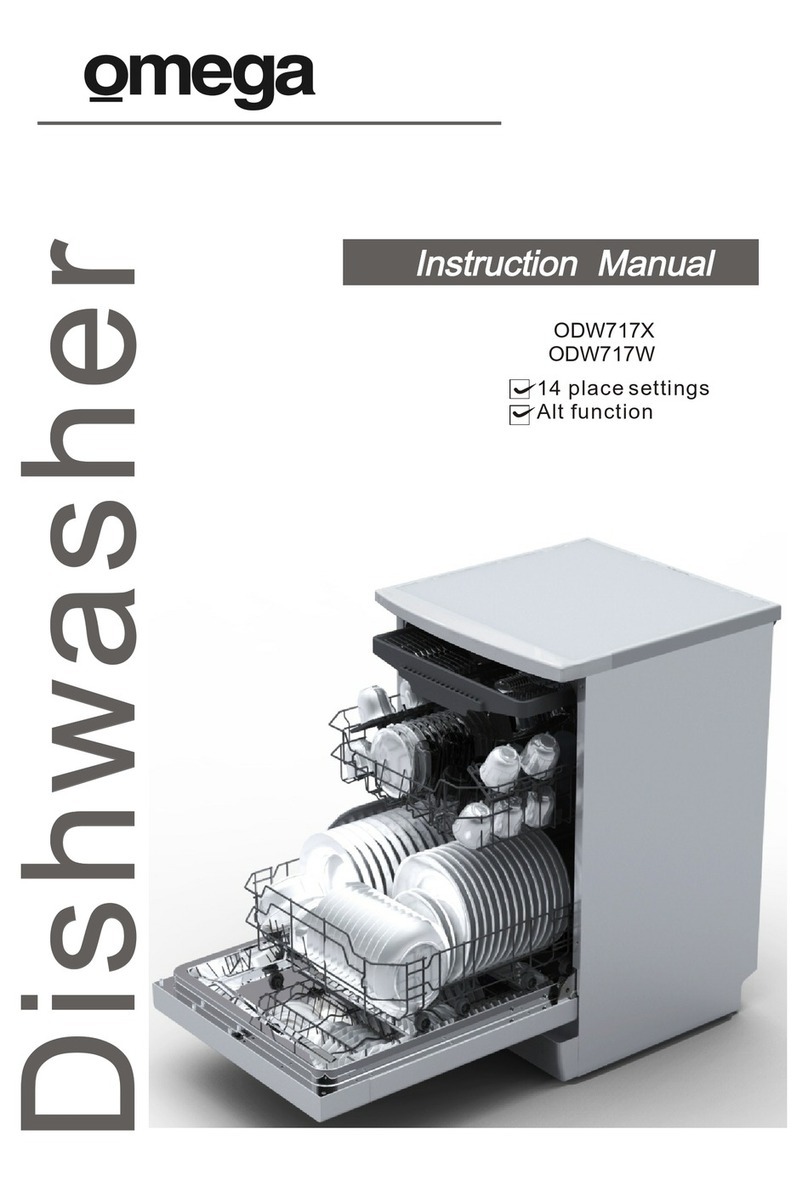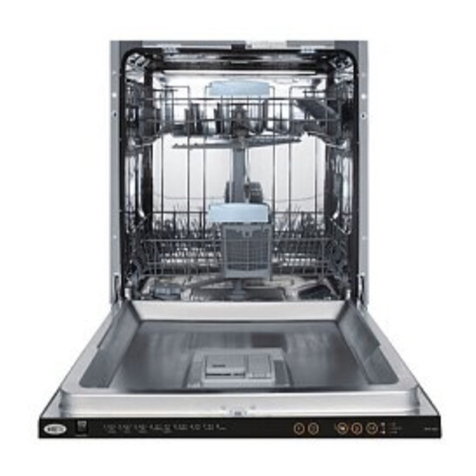.
G&d dishwashing starts
with HOTwater.
To get dishesclean anddry,you
need ho~water.To help you get
water of theproper temperature,
your dishwasherautomatically
heats the water in the washcycle.
Forgood washing and drying,
the entering water mustbe at
least 120°F.Topreventdish
damage, inletwater shouldnot
exceed 150”F.
How to test water temperature:
Higher water temperatureis
needed to dissolvegrease and
activate powder detergent.
Checkyour water temperature
with acandy or meat thermometer.
Turn on the hot water faucet
nearest the dishwasher.Put the
thermometer in aglass and let
the water run continuouslyinto
the glass untilthe temperature
stops rising. If the water
temperature is below 120”F.,
adjust your water heater.
Helpful hints: If outside
temperatures are unusually low,
or if your water travels along
distance from water heater to
dishwasher, you may need to set
your water heater’s thermostat up.
If you have not used hot water for
some time, the water in the pipes
will be cold. Turn on the hot water
faucet at the sink and allow it to
run until the water is hot. Then
start the dishwasher. If you’ve
recently done laundry or run hot
water for showers, give your water
heater time to recover before
operating the dishwasher.
To improve washability if the
water is less than 120°Fand you
cannot adjust your water heater:
Select alonger cycle and fill both
detergent cups at least half-full
with detergent,
Help preventspottingwith
arinseagent,
Arinseagent makes water flow
off dishesquickerthan usual.This
lessenswater spottingand makes
drying faster,too.
For bestdishwashingperformance,
use of arinse agentsuch as .JET-
DRYbrand is recommended,
Rinse agents come in either liquid
or solidform. Yourdishwasher
uses the solidform.
Hyou can’t find any rinse agent,
write:
BENCKISER CONSUiMER
PRODUCTS, INC,
(“JET DRY”)
411 W.Putnam Ave.
Greenwich, CT 06830
How tochoosem-dl.lse
theright ‘detergent.
First, use only powder or liquid
detergent specificallymade for
use in dishwashers.Other types
will cause oversudsinge
Second, check the phosphate
content. Phosphatehelps prevent
hard-water materialsfrom forming
spotsor film on your dishes.If
your water is hard (7grainsor
more), your detergenthas to work
harder.Detergentswith ahigher
phosphatelevel will probably
work better.If the phosphate
content is low (8.7% or less),
you’ll have to use extra detergent
with hard water.
Yourwater department can
tell you how hard your water
is. So can your county extension
agent. Or your area’s water
softener company.Just call and
ask them how many “grains” of
hardness is in your water.
How much detergent should
you use? That depends. 1syour
water “hard” or “soft”? With hard
water, you need extra detergent to
get dishes clean. With soft water,
you need less detergent.
Too much detergent with soft
water not only wastes money, it
can be harmful. It can cause a
permanent cloudiness of
glassware, called “etching.” An
outside layer of glass is etched
away!But why take achance
when it’seasy to find out the
hardness of your water.
Keep your detergent fresh and
dry. Under the sink isn’t agood
place to store detergent. Too much
moisture. Don’t put powder
detergent into the dispenser until
you’re ready to wash dishes,
either. (R won’t be fresh OR dry.)
If your powder detergent gets
old or hmpy, throw it away. R.
won’twash welL Old detergent
often won’t dissolve.
If you use aliquid dishwasher
detergent, these precautions are
not necessary because liquid
detergents don’t “lump” as they
age or come in contact with water,
6
